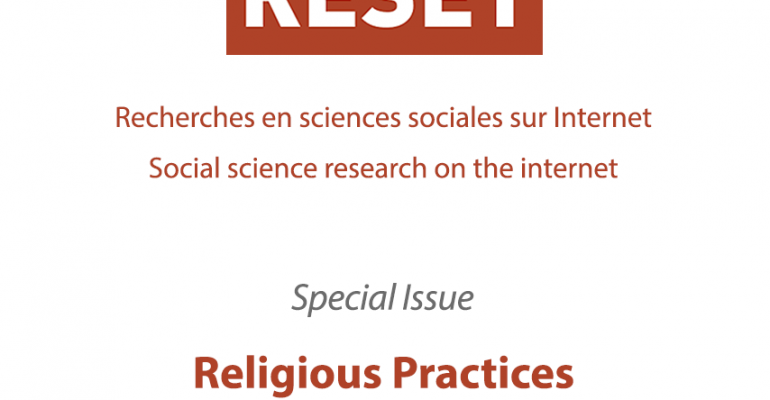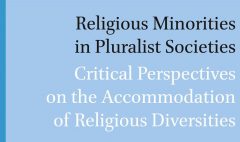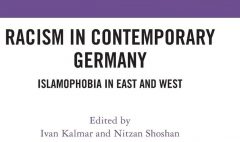Special Issue: Religious Practices and the Internet
October 16, 2018 2023-10-08 8:36Special Issue: Religious Practices and the Internet

Special Issue: Religious Practices and the Internet
Journal: RESET (recherches en sciences sociales sur internet / social science research on the internet)
Special Issue: Religious Practices and the Internet
Edited by Fabienne Duteil-Ogata (Clare EA4596, Université Bordeaux-Montaigne / IIAC [EHESS/CNRS]) and Isabelle Jonveaux (CéSor, EHESS)
This special issue precisely aims at exploring how the Internet affects religion or conversely, how religion can transform digital media. These questions may be discussed at least from two standpoints. On the one hand, one can consider that religions have always used media and that there is in fact no religion without media (Krotz, 2007). This theory relies on the conceptualization of religions as communication systems.
The use of digital media by religious institutions is consequently unsurprising, because throughout history and often very fast, they have invested the major communication developments, such as the printing press in the Middle Age (Eisenstein, 2005 [1983]) or telephone and then television since the end of the 19th century (Sastre Santos, 1997). In this perspective, digital media has brought nothing really new to religions and what is observed online is nothing but an extension or the reflection of the current trends related to religious matters and its modernity (Jonveaux, 2013). On the other hand, the opposite position considers that new media transform both religions’ contents and practices (Hjarvard, 2013). They lead precisely to the creation of new religious forms or “cyberreligions” (Hojsgaard, 2005) in which religious institutions as well as religious practices exist only online, like in the case In this perspective, the Internet can be seen as a tool that has carried something original and exclusive to the practice of religions, far from only reproducing online offline practices.
For this special issue, we have therefore identified at least four research directions:
1. Rituals, Worship, Prayers and Celebrations
2. Identities, Belongings, Avatars and Communities
3. Asceticism, Fasting and Prohibitions
4. Conversion, Education and Transmission
Source: OpenEdition Journals








